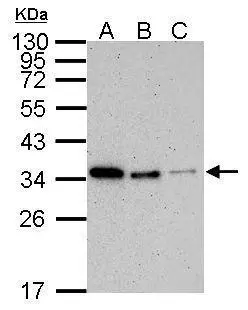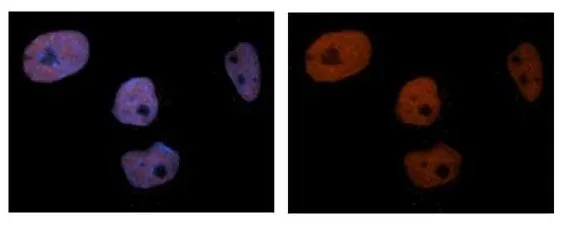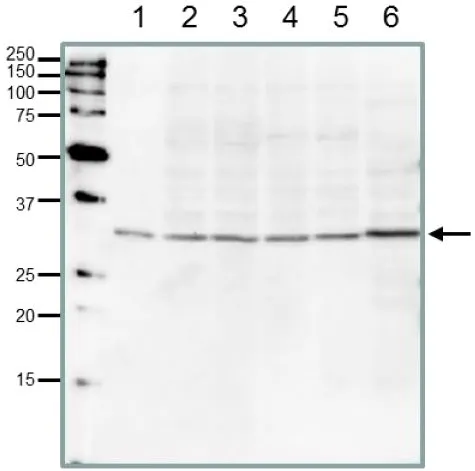
WB analysis of various samples using GTX00723 PCNA antibody. Lane 1 : Full-length recombinant human PCNA protein (5 ng) Lane 2 : HeLa whole cell lysate (20 μg) Lane 3 : MCF-7 whole cell lysate (20 μg) Lane 4 : NIH3T3 whole cell lysate (20 μg) Lane 5 : CHO whole cell lysate (20 μg) Lane 6 : Xenopus laevis egg (frog; 20 μg) Dilution : 1:1000
PCNA antibody
GTX00723
ApplicationsDot Blot, ImmunoFluorescence, ImmunoPrecipitation, Western Blot, ELISA, ImmunoCytoChemistry
Product group Antibodies
ReactivityChicken, Hamster, Human, Mouse, Rat, Xenopus
TargetPCNA
Overview
- SupplierGeneTex
- Product NamePCNA antibody
- Delivery Days Customer9
- Application Supplier NoteWB: 1:1000-1:2000. ICC/IF: 1:100-1:1000. IP: 1:100-1:500. Dot: 1:500-1:2000. ELISA: 1:500-1:2000. *Optimal dilutions/concentrations should be determined by the researcher.Not tested in other applications.
- ApplicationsDot Blot, ImmunoFluorescence, ImmunoPrecipitation, Western Blot, ELISA, ImmunoCytoChemistry
- CertificationResearch Use Only
- ClonalityPolyclonal
- Concentration1 mg/ml
- ConjugateUnconjugated
- Gene ID5111
- Target namePCNA
- Target descriptionproliferating cell nuclear antigen
- Target synonymsATLD2, proliferating cell nuclear antigen, DNA polymerase delta auxiliary protein, cyclin
- HostRabbit
- IsotypeIgG
- Protein IDP12004
- Protein NameProliferating cell nuclear antigen
- Scientific DescriptionThe protein encoded by this gene is found in the nucleus and is a cofactor of DNA polymerase delta. The encoded protein acts as a homotrimer and helps increase the processivity of leading strand synthesis during DNA replication. In response to DNA damage, this protein is ubiquitinated and is involved in the RAD6-dependent DNA repair pathway. Two transcript variants encoding the same protein have been found for this gene. Pseudogenes of this gene have been described on chromosome 4 and on the X chromosome. [provided by RefSeq, Jul 2008]
- ReactivityChicken, Hamster, Human, Mouse, Rat, Xenopus
- Storage Instruction-20°C or -80°C,2°C to 8°C
- UNSPSC12352203

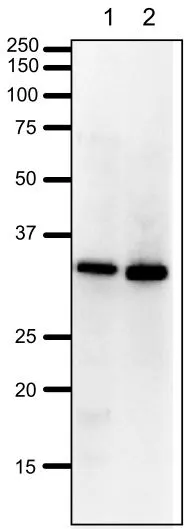
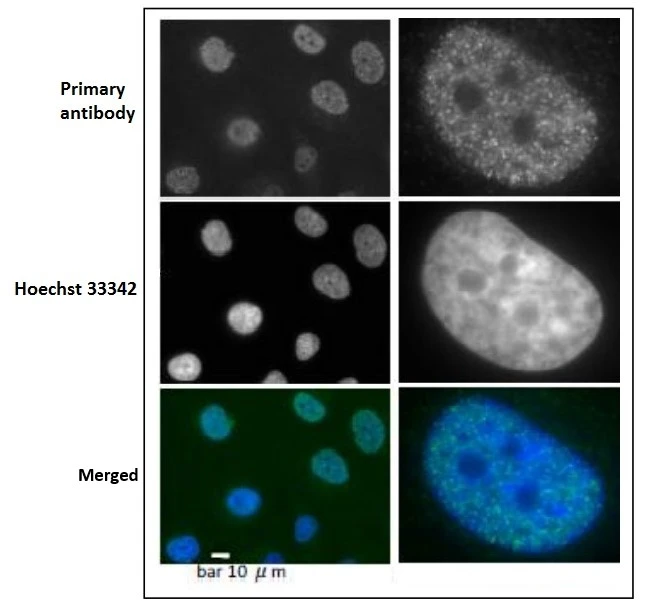


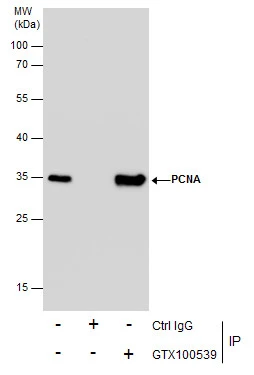
![ELISA analysis of antigen using GTX60692 PCNA antibody [7H4F8].
Black : Control antigen 100ng
Purple : Antigen 10ng
Blue : Antigen 50ng
Red : Antigen 100ng](https://www.genetex.com/upload/website/prouct_img/normal/GTX60692/GTX60692_20170912_ELISA_w_23061123_743.webp)
![Various whole cell extracts (30 μg) were separated by 12% SDS-PAGE, and the membrane was blotted with PCNA antibody [HL1965] (GTX637858) diluted at 1:1000. The HRP-conjugated anti-rabbit IgG antibody (GTX213110-01) was used to detect the primary antibody.](https://www.genetex.com/upload/website/prouct_img/normal/GTX637858/GTX637858_T-44858_20221125_WB_M_R_22112723_448.webp)
![Whole cell extract (30 μg) was separated by 12% SDS-PAGE, and the membrane was blotted with PCNA antibody [HL1966] (GTX637859) diluted at 1:1000. The HRP-conjugated anti-rabbit IgG antibody (GTX213110-01) was used to detect the primary antibody.](https://www.genetex.com/upload/website/prouct_img/normal/GTX637859/GTX637859_T-44858_20221209_WB_D_22121123_640.webp)
